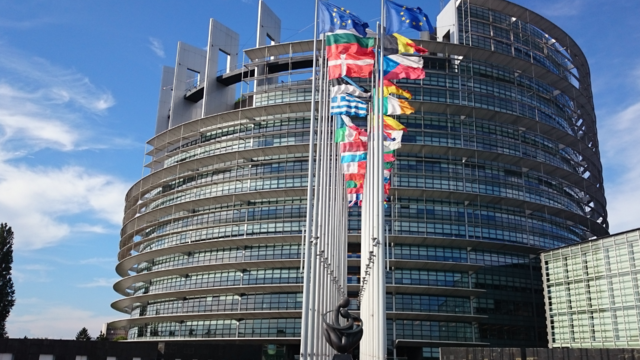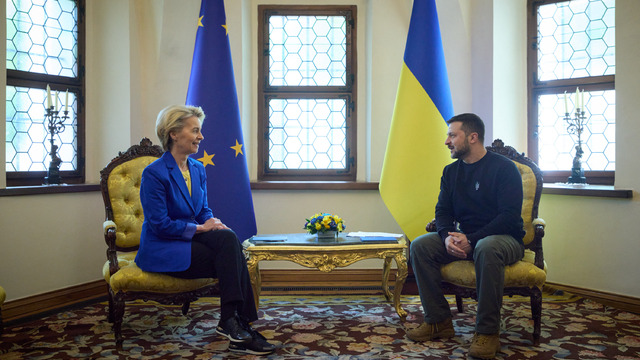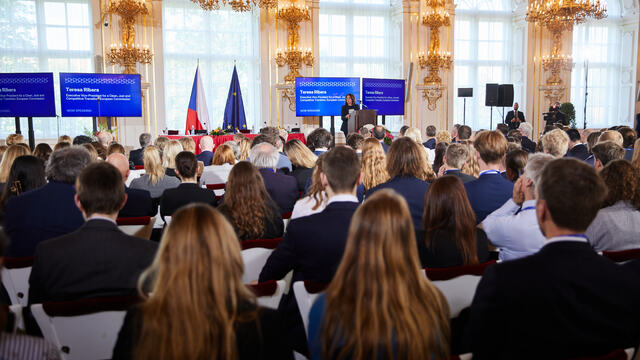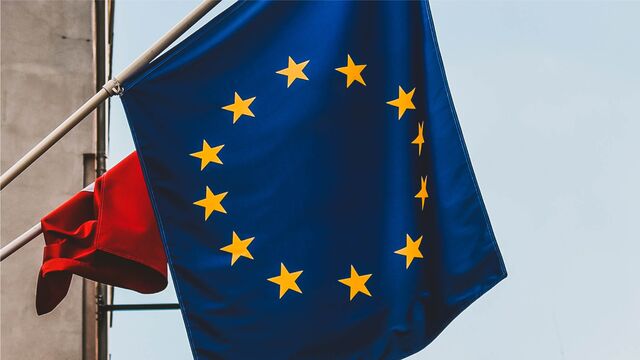Better Protection of the Rule of Law – or of European Taxpayers’ Money
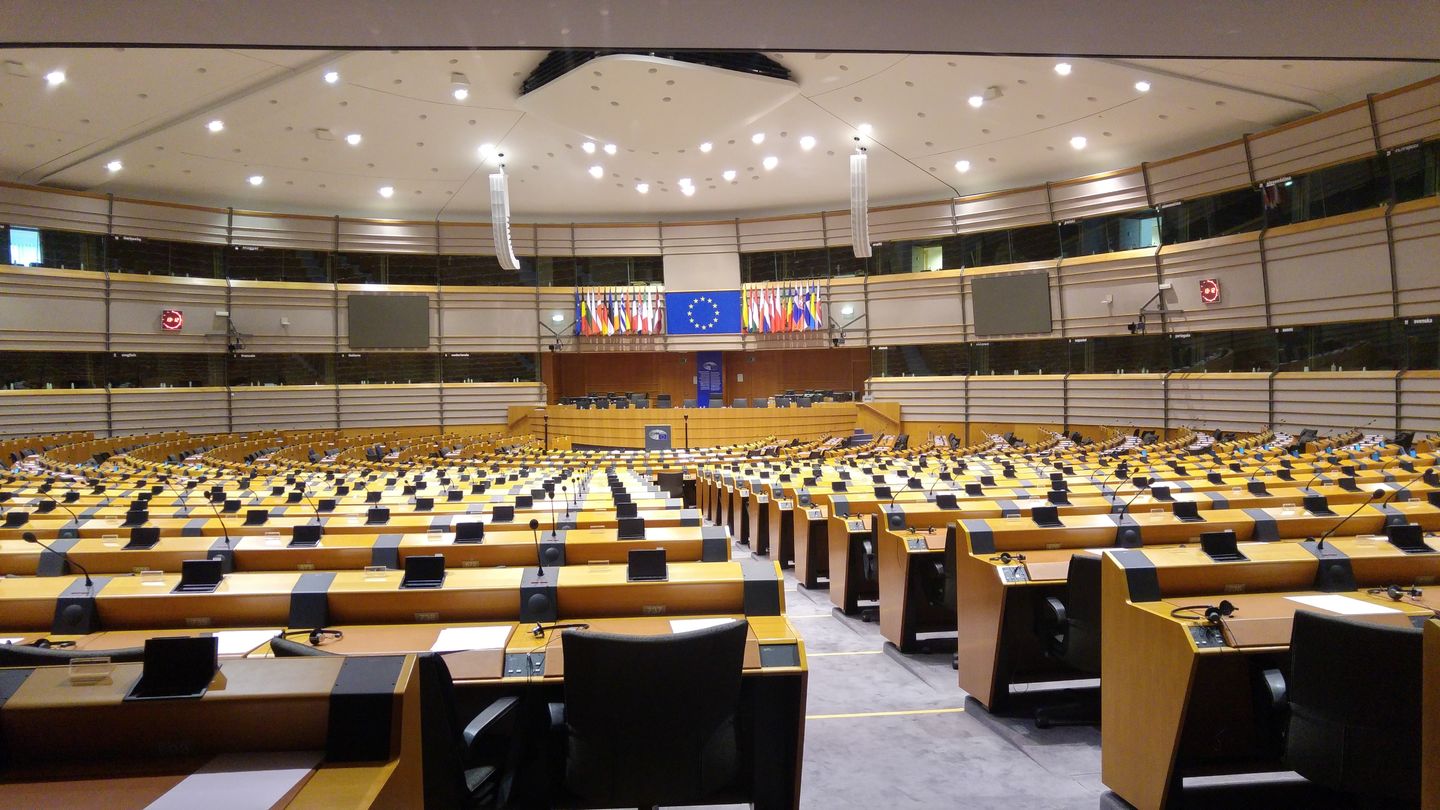
brief
Tamás Lattmann, senior researcher at Center for International Law, wrote a reflection concerning European Parliament’s proposed regulation which aims for better protection of the rule of law in EU member states and suggests employing financial sanctions in case of shortcomings.
The European Parliament has made a first decision about a new regulation, aiming for better protecting the rule of law in member states, by possibly employing financial sanctions in case of shortcomings. This reflection explains the difference between the proposed procedure and already existing mechanisms, sheds light on the background of the new legislation and addresses some of the questions it may raise related to EU law, member state sovereignty and its possible effects.
THE ALREADY EXISTING PROCEDURES AND THEIR SHORTCOMINGS
The EU legislation is on its way to adopt a regulation about a brand new procedure safeguarding the rule of law in member states, titled “Regulation of the European Parliament and of the Council on the protection of the Union’s budget in case of generalised deficiencies as regards the rule of law in the Member States”.1 The European Parliament has adopted the text with amendments, which will now be seen by the Council, and if adopted, will become European law. Those familiar with the EU legal regime may ask the question, why it is needed, and what the difference could be between that and the already existing “Article 7” procedures.
The existing procedure according to Article 7 of the Treaty on the European Union (TEU) has always been known to be problematic and in practice it has proven to be impossible to apply effectively. According to the codified provisions, the three-stages procedure require strict and devoted political consensus, requiring two third majority in the European Parliament, four-fifth majority in the Council, then unanimity in the European Council, which provides a wide space of manoeuvring for a member state in question. The results of the procedure are also uncertain: the Treaty talks about restraints in the rights of the member state, including a possible loss of voting rights, but practically it is up to the Council to decide about those (with a qualified majority) in the third stage of the procedure. Additionally, the whole procedure is vastly political in nature, the Council and the European Council making practically political decisions, the European Court of Justice having no oversight about its substantial parts at any stage, which may easily raise questions about the legitimacy of any results, especially because a procedure like this takes place in politically tense situations.
Some of these problems are not only theoretical, but also proven by existing practice and experience that we can draw from the current two procedures initiated during 2017–2018, one against Poland by the European Commission, and the other one against Hungary by the European Parliament. The two governments are not only accusing the EU institutions of acting biased towards them based on unfounded claims, there are also statements about denial of vote against each other in the second phase of the procedure, where unanimity is needed at the vote by heads of states or governments in the European Council. This would make any result of the procedure practically impossible, as the second phase, the vote in the European Council would not be successful. There was an idea raised about conducting the procedure against the two member states at the same time, so that neither of them may cast a vote on the matter, but this solution is clearly against the text of the treaty.
Talking about results: as indicated above, the text of the TEU does not specify what sanctions the Council may apply, thus there is room for different ideas, depending on the decision of the Council in the third stage of the procedure. Interpretation of the text of the treaty may lead to the possibility of withholding EU funds as well, which would definitely be painful to beneficiary member states, but a decision like that would probably lead to further debates, provided it could ever be reached. This gains more and more relevance, as there is a growing consensus about financial consequences being the only possible effective sanction to member states in violation of EU values.
THE PROPOSED NEW PROCEDURE – DIFFERENCES
The most important difference with the new procedure is that it narrows its possible base from the wide and still undefined “values of the EU” embodied in Article 2 of the TEU to “rule of law” requirements related to the use of public funds. As the text of the proposed regulation says: “principles of legality, implying a transparent, accountable, democratic and pluralistic process for enacting laws; legal certainty; prohibition of arbitrariness of the executive powers; effective judicial protection by independent courts, including of fundamental rights; separation of powers and equality before the law”. The “generalised deficiency as regards the rule of law” as a reason for this procedure means a “widespread or recurrent practice or omission, or measure by public authorities which affects the rule of law”.
These narrowed definitions are more practical, than the vague and wide description of the TEU, and many earlier European procedures have served as a practical-interpretational basis, namely earlier infringement procedures initiated by the European Commission, opinions of the Venice Commission and judgments of the European Court of Human Rights. While the latter two are not institutions of the EU but of the Council of Europe, their work is widely accepted and referred to by the EU institutions and member states, which is indicated by the fact, that during the Parliament’s January decision, a direct reference to these institutions have been proposed as an amendment by the majority.
Similarly to the reason, the result of this procedure is similarly narrowed: instead of general limitation of rights of the respective member states, it is targeted to various possibilities of the European Commission to withhold EU funds. So the result is clearly of financial nature, which – as indicated above – is considered to be the most painful to many member states.
The biggest difference lies with the procedure itself. Contrary to the Article 7 procedure, this one is simple and does not involve politics or interests of the member states. According to Paras 6–8 of Article 5 of the draft regulation, the Commission after a consultation period with the member state in question may trigger – and execute – the sanctions practically by its own decision, while the Council can stop it within one month by a qualified majority vote. This takes the form of a Commission proposal for a Council decision, which is, according to the text of the proposed regulation, “deemed to have been adopted by the Council, unless it decides, by qualified majority, to reject the Commission proposal within one month of its adoption by the Commission”, with the Council having the possibility to amend the Commission’s proposal by a qualified majority. The same procedure applies to lifting sanctions, if the Commission agrees that the deficiency as regards the rule of law has been remedied or has ceased to exist.
This can easily and correctly be seen as an Article 7 proceeding turned upside down: politics and a political decision is applied not to trigger sanctions, but to stop their application or to lift those sanctions. This will pose a very dangerous challenge to member states, who have so long been trying to hide behind state sovereignty and the need of a political consensus among the ranks of the Council, making an Article 7 procedure potentially impossible.
THE FUTURE OF THE PROPOSAL
Will this regulation become law in the end?
First, beside the European Parliament, the Council also has to consent to the proposal (with the amendments adopted by the Parliament), as EU legislative power is not vested exclusively on the European Parliament, directly elected by EU citizens, but is usually exercised together with the Council, with member states’ gov- ernments represented by their respective members. The proposal will be subject to qualified majority vote, meaning that the proposal is adopted if it is supported by 55% of the member states (15 of the 28 members) which together represent 65% of the total EU population. Looking at the positions and opinions expressed by member states so far, and considering the fact, that the vote may happen in the European Parliament’s elections’ campaign period, when member state governments’ politicians would try to project an image of being the guardian of the fair use of tax money, we can predict that the proposal will pass. Additionally, it is important to draw attention to the fact, that net contributor member states’ governments will probably feel compelled to support it because of political pressure by their own taxpayers. Currently, looking at the amendment proposals adopted by the European Parliament,2 none of those endanger the essential parts of the new proposal, the most important of which are about possibly strengthening the role of the Commission, and the creation of a panel of independent experts. On the other hand, these may meet increased resistance from member states not supporting the whole idea. This may lead to the legislative process becoming longer, as these amendments may take the proposal back to a second reading by the European Parliament and the Council, after the Commission forms it position on those. At the end of the day, Poland and Hungary, current subjects of Article 7 procedures, and possibly other corruption-infested or potential subjects of the new procedure will probably resist the proposal (as already indicated by votes by MEPs from these states), but will hardly raise the level of blocking minority in the Council, meaning 45% of the member states, or minimum four member states representing at least 35% of the EU population. (To predict possible voting results, using different member states’ possible votes, the online Council voting calculator provides an easy-to-use assistance.)
Second, even if the proposal passes the Council, it seems to be certain that some member states will not only attack it viciously on the level of political communications, but will initiate an annulment procedure against it at the Court of the European Union, arguing that it is a violation of the founding treaties. In a case like that, the Court may strike down a piece of union legislation, and this will be the goal of these states to prevent it from entering into force, or from being applied in practice.
The necessity of an independent actor to identify the “generalised deficiencies as regards the rule of law” is an important question, and probably will be at the centre of criticism by opposing member states, arguing that the European Commission does not meet these criteria. There may be two ways to remedy this problem. First, the European Commission’s work shall be assisted by an independent experts’ panel, created for this reason, which has been adopted as an amendment by the European Parliament. It is important to add, that this idea has support for a long time, Manfred Weber, current candidate for next president of the European Commission and the European People’s Party has already raised the idea of creating a similar body much earlier,4 but now they can insert it into the context of this new procedure. Second, the decision of the Commission to trigger the sanctions after the consultation period can be made subject to judicial overview by the European Court of Justice, which gives not only an independent, but a judicial revision possibility.
PROTECTION OF…?
Rule of law is of utmost importance to European Union and shall be the same to its member states. This new procedure may be a useful and effective addition of the EU toolbox, as it can hurt member state governments, where it causes the most pain. On the other hand, as budget commissioner Günther Oettinger has put it at the time of the parliamentary vote, “It’s not a question of sanctions per se, it’s a question of the protection of European money”. leaving no doubt about the main goal of the legislation, not even hidden too well behind the curtain of principles and values. But probably those interested in strengthening the EU’s role in safeguarding rule of law within member states would not mind accepting the need of protection of net contributor member states’ taxpayers’ money as the price of better protection of rule of law.

